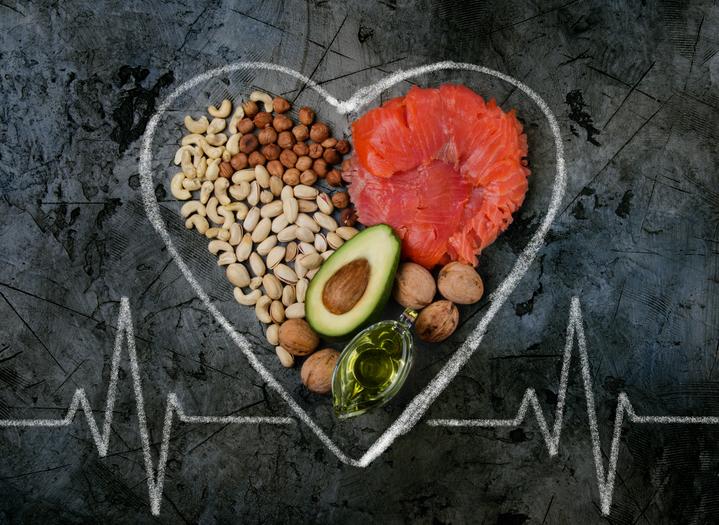It is still misunderstood by many health-conscious people the use of healthy fats and why they are crucial to your overall health. So, what are the good fats to eat and how can we incorporate them into our diet?
I still believe talking to clients and friends about the importance of good fats in their diet is key to overall health and wellbeing, so I will go through in this article what are the fats you should have in your diet and which you should avoid.
Why are fats important?
Everybody should consume fat, as it is essential for our bodies. Every single day we should look to consume healthy dietary fat, as it is essential for body optimisation, such as the role of supplying the body with hormones like Testosterone, supporting the structure of cells and providing an energy source.
From a calorie perspective, fats don’t stack up that well against other macronutrients. While carbohydrates and proteins contain 4 calories per gram of weight, fat contains 9 calories per gram. You can see why a few years ago the common advice was to eat more carbohydrates and consume less fat. Eating more sugar has certainly left many of us addicted to sugar and consuming more calories than we need. However, with 9 calories per gram, it could be quite easy to consume more calories than we burn and end up in a caloric surplus.
The overall guidance is to consume 20-30% of our daily macros from dietary fats. An example of a person who regularly exercises and performs strength training would typically consume a diet of the 3 macros split into 3rds, so 1/3 protein, 1/3 carbohydrates and 1/3 fats.
What does “Healthy Fats” mean?
Quite simply put, saturated fats should be limited, and unsaturated fats should be your edible aim. So what makes a fat saturated or unsaturated? These two groups of fats have different carbon bonds. Unsaturated fats have a covalent bond between some carbon atoms and saturated fats do not. Therefore, saturated fights with have their carbon atoms more tightly packed together.
Good vs Evil
As a rule of thumb, unsaturated fats are touted, as the healthier form of fat. The recommendation is that only 10% of our daily consumption of fat should be of the saturated variety. There’s no denying that saturated fats have medical links to cholesterol, so limiting for your overall health.
Keto Diets
I want to take an opportunity here to make a health point. Keto diets made popular by Mr Atkins are extremely popular for weight loss and concentrate on reducing carbs to almost zero, so that your body goes into ketosis. Be very careful if you embark on such a diet, as you will be swapping out carbohydrates for fats and those fats you put into your body need to be the healthy fats and good sources of fats. It would be detrimental to your health to eat a diet that contained a high proportion of saturated fat. You’d probably still lose weight and go into Ketosis, but at the cost of risking your cardiovascular health.
Here are some healthy sources of unsaturated fats:
Avocados, Almonds, walnuts, pistachios, Olives, Ground Flaxseed, Salmon, Sunflower seeds
Here are some healthy sources of saturated fats (limited consumption)
Eggs, Grass fed beef, Full fat milk, Full fat yoghurt
Today’s guidance centres mainly around cardiovascular disease and heart health. Unsaturated fats are higher in HDL (a lipoprotein that carries cholesterol away from the heart) and LDL (a lipoprotein which carries cholesterol to the heart).
Unsaturated fats can be broken down further into two subcategories of monounsaturated fats and polyunsaturated fats.
Monounsaturated Fats
Monounsaturated fats tend to be more of the plant-based source. Foods such as, avocados, vegetable oils, nuts, and seeds. These particular fats have been found to improve heart health, lower inflammation, improved insulin sensitivity and improved weight loss.
Polyunsaturated
Sources of polyunsaturated fats are found in marine and plant-based foods. You may have heard about the benefits of omega-3, well polyunsaturated are where we find omega-3. These types of fats have been proven to help cardiovascular health, brain development (in children), lower levels of inflammation, and an overall healthy immune system. This by no means is the complete list of benefits.
So are Saturated Fats Really Bad for us?
There is no doubt that saturated fats are generalised as bad. Saturated fats are associated with heart disease, as they are high in cholesterol. New research is challenging the statuesque as science develops.
Saturated fats are found in animal products, which contribute in sex hormone production and brain function. This is because this fat is high in cholesterol and is important in the human diet. If you’re unsure of how much to saturated fat to consume in your daily diet, then it’s best to stick to the national health guidelines of no more than 10% of saturated fat per day.
Trans fats
Wait there’s more fat to go. Trans fats are known by a few names like hydrogenated fat or partially hydrogenated. These trans fats are man-made fats and they are unsaturated, as they go through a process to make them solid at room temperature. There is no such guidance of the amount of trans fats you should have in your diet to stay healthy. Research isn’t conclusive, but there is a very real risk that even a small amount of trans fats in the daily diet can increase the chances of developing heart disease.
To clarify, there are no health benefits with having trans fats in your diet. Trans fats are more often found in pastries, cookies and all man made produce, as they help to aid the shelf life.
What about fats for weight loss?
Unfortunately, there is no special fat that you can eat or rub onto your belly which melts away your unwanted love handles. However, there are some fats that might help the body breakdown stored fat to be used as fuel, but only in conjunction with a calorie deficit diet. This may help your diet to be a little more efficient for fat burning.
Summary
Hopefully you now have a clearer understanding on what fats to include and exclude you’re your diet and how eating man made products like cookies and pasties aren’t just empty calories, but contain harmful types of fats. Unsaturated fats have proven health record and are considered the healthiest amongst the fats. Saturated fats do have some essential properties, but should be limited on a daily basis. Trans fats have no place in the diet and should be completely avoided. Please check the label of man made products you buy very carefully.

